Methodical Putting In Place Of Institutions
- Par Richard Kometa
- 06 Nov 2020 09:36
- 0 Likes
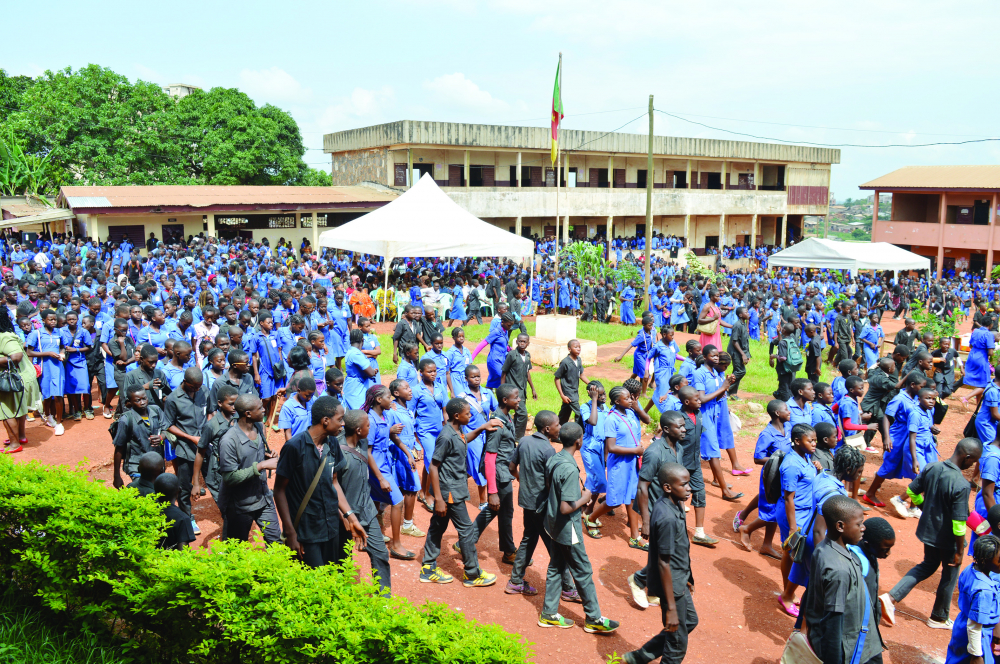
Cameroon has come a long way under the leadership of President Paul Biya`s 38 years in power. With regular challenges in a multifaceted country and the dire need to ensure institutional frameworks that enable the State to fulfil its role towards citizens, the hurdles have often revolved around economic, political, diplomatic, and social considerations. The nagging economic crisis in the 80s, political upheavals in the 90s, border dispute over Bakassi Peninsula in the 2000s and current threats by separatists in the South West and North Regions have not derailed the resolve to match popular aspirations with State considerations.
The country will on 6 December, 2020 witness the election of Regional Councillors that will culminate in the setting up of a House of Chiefs in the two restive regions of South West and North West. It is a follow-up to the 1991 Tripartite Conference in Yaounde that saw citizens from across the nation meet to examine recriminations tabled by those who found issues with the running of State affairs and wanted modifications. The discussions gave birth to the 18 January, 1996 Constitution that made some changes to that of 2 June 1972. In order to meet the demands of the people, the 1996 Constitution called for bicameral House of Parliament, the creation of Regional Councils, among others. Senate representatives are in their second tenure in office following the 14th April, 2013 election and that of 25th March 2018. On 7 February, 2018 President Paul Biya signed a decree creating the Constitutional Court as per the terms of the 1996 fundamental law. But recent happenings in the country since 11 November, 2016 have dictated another pace of events. A series of syndicate claims coming from the Trade Union of Teachers and Common Law Lawyers within the English sub-system in the country resulted in the holding of the Major National Dialogue (MND) in Yaounde from 30 September to 4 October 2019. After heated debates, participants arrived at the consensus whereby a Special Status has been granted for the South West and North West Regions as well as the restoration of the House of Chiefs to reflect the realities of Cameroon at Unification in 1961.
Such systematic efforts at reforms in the country will naturally appear slow for some, fast for others and yet good enough in certain quarters. Whatever the conclusion at individual or collective levels, the bottom line is that things have been happening. Another indication of such reality of evolution in the institutional build-up of Cameroon will be seen on 6 December, 2020 when Councillors and Chi...
Cet article complet est réservé aux abonnés
Déjà abonné ? Identifiez-vous >
Accédez en illimité à Cameroon Tribune Digital à partir de 26250 FCFA
Je M'abonne1 minute suffit pour vous abonner à Cameroon Tribune Digital !
- Votre numéro spécial cameroon-tribune en version numérique
- Des encarts
- Des appels d'offres exclusives
- D'avant-première (accès 24h avant la publication)
- Des éditions consultables sur tous supports (smartphone, tablettes, PC)






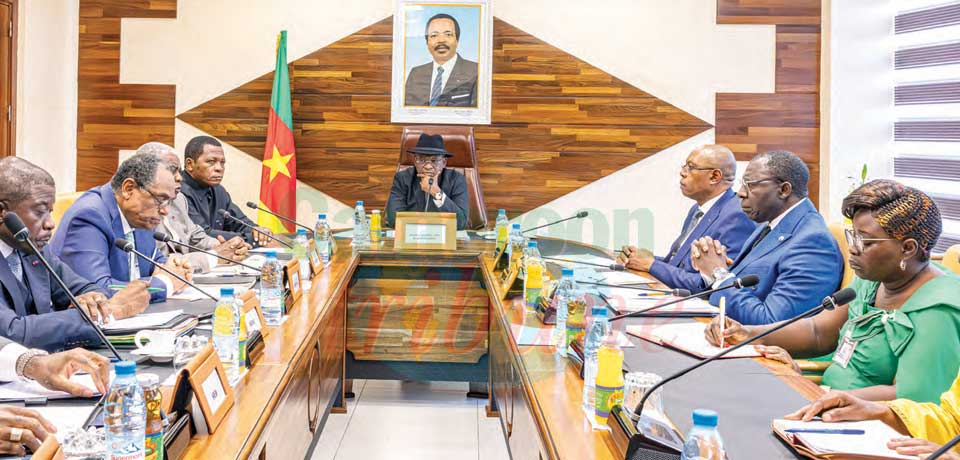
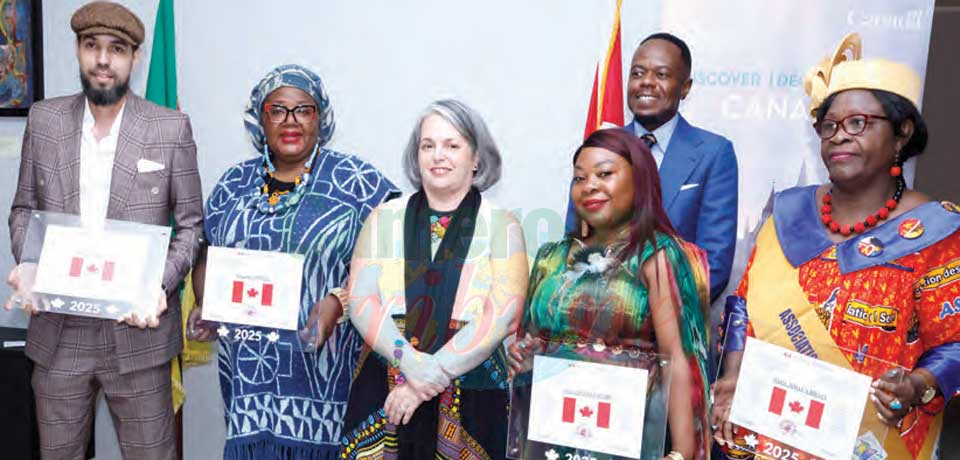
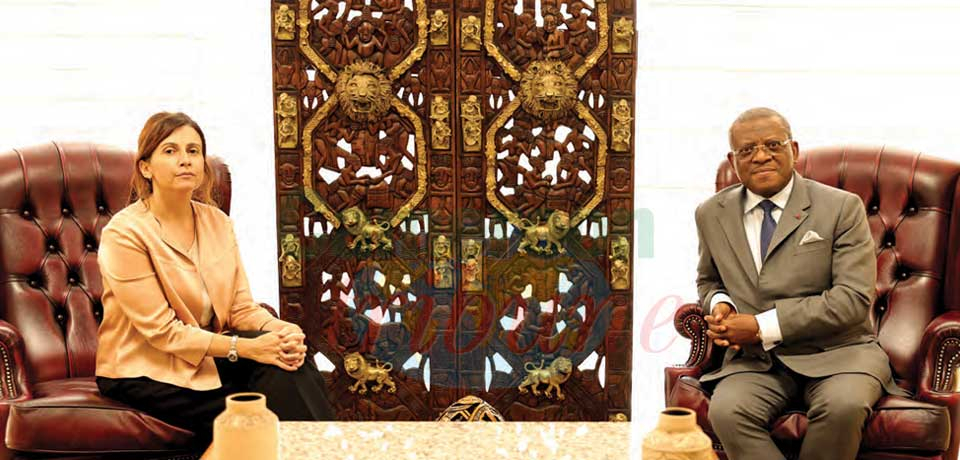
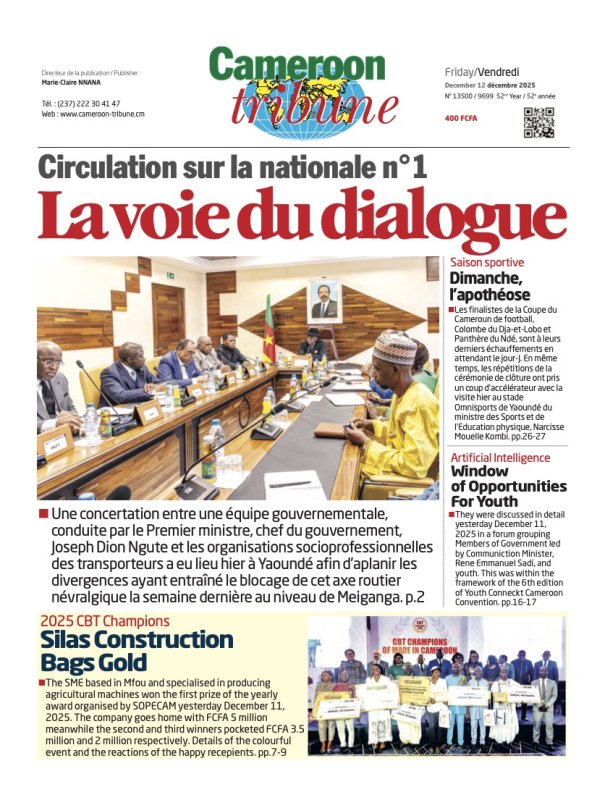




Commentaires